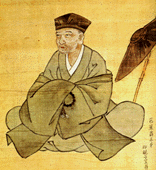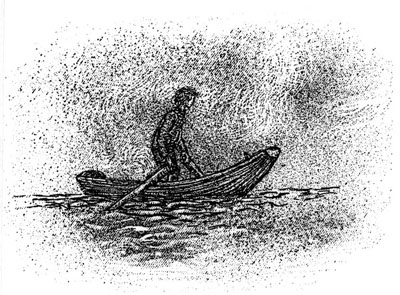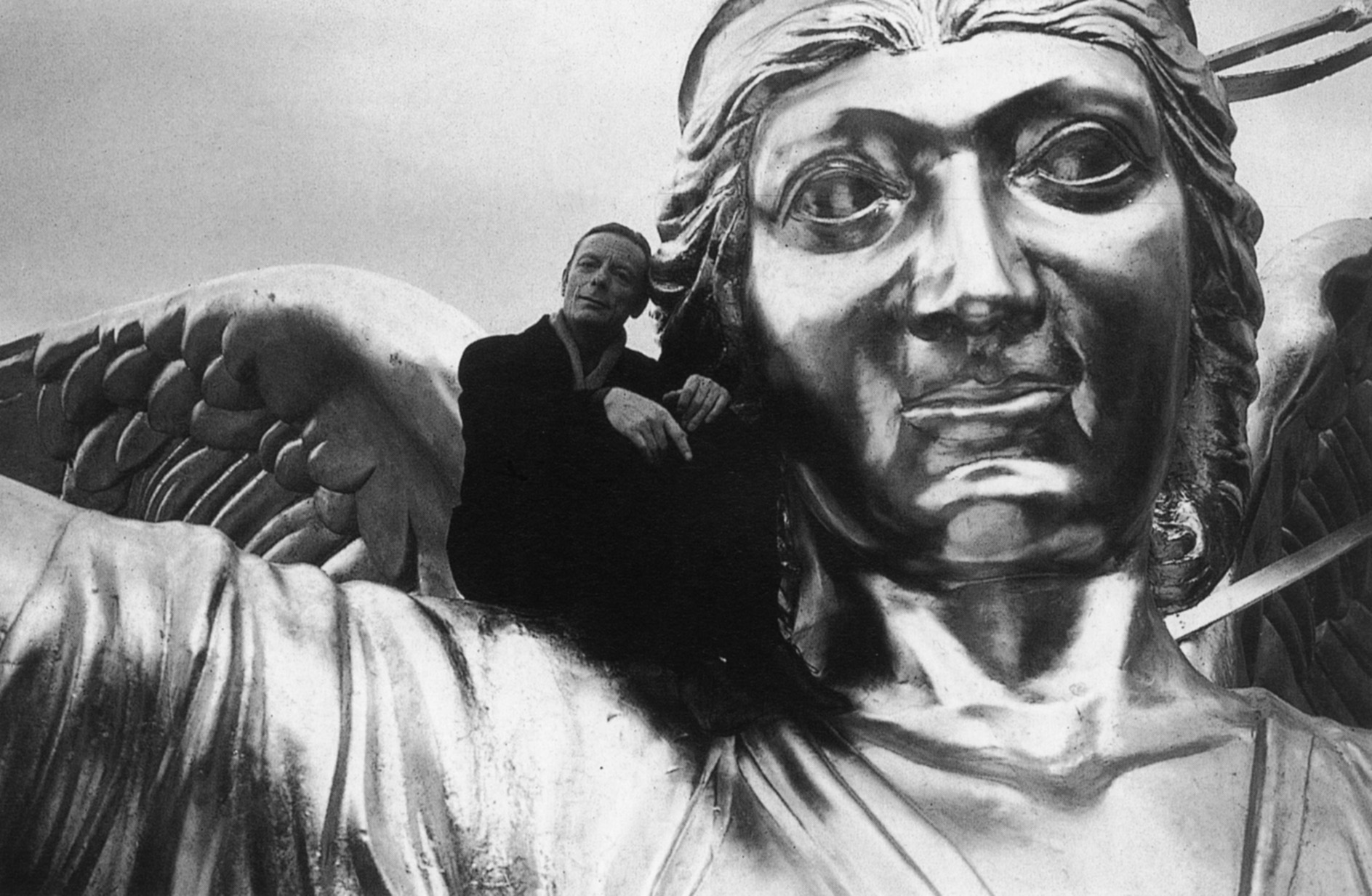| quarta-feira, maio 14, 2008 |
| Literatura e ciência |

"So bring together obsolete theory, inadequate methods, unbridled ideological bias, and a spirit of surrender to "unknowability," and you have the modern situation in academic literary study - a system that seems to be designed not to generate reliable and durable knowledge." [...] "The changes I'm recommending would constitute a paradigm shift. They would require deep alterations in what literature departments teach and how students are trained. Of course, graduate students would still take the familiar courses on Shakespeare, Victorian novels, and 20th-century poetry, but they would also take courses covering scientific research methods, the basics of statistics and probability, and current thinking in the sciences of the mind."
Para rir... ou para reflectir?! |
| posted by George Cassiel @ 9:23 da manhã |
|
|
|
| terça-feira, maio 06, 2008 |
| Pensar o impossível |
Lendo The Observer encontramos isto:
"Given that Zimbabwe has for a long time been staging a drama before a worldwide audience, it's amazing that anyone felt it necessary to mount an arts festival. But someone did 10 years ago, and the Harare International Festival of the Arts (HIFA) has been running ever since. Perhaps when the world is looking in your direction and counting down to economic and civil collapse, the only thing to do is to build a giant stage and start thinking the impossible."

Terminou no Domingo, mas aqui fica o site do festival: Harare International Festival of the Arts. |
| posted by George Cassiel @ 8:54 da manhã |
|
|
|
|
| "The Elvis of cultural theory" |

“Everybody in the World Except US Citizens Should Be Allowed to Vote and Elect the American Government”. Uma entrevista com Slavoj Zizek. |
| posted by George Cassiel @ 8:48 da manhã |
|
|
|
|
| Respiração do mar |
Errantes as palavras, as janelas,
respiração à flor do mar no côncavo da arca
ombro imenso que não encerra, todo o espaço
como um só corpo onde o vento começa.
António Ramos Rosa
|
| posted by George Cassiel @ 8:46 da manhã |
|
|
|
| segunda-feira, maio 05, 2008 |
| Regresso ao cais |
no marítimo lodo da fala fazem ninho
pássaros de sal com suas asas afiadas
sulcam
o susto de ficar sozinho
e a cabeça sibilante de uma libélula esvoaça
na visão dourada do sonho o tempo circular dos dedos
no corpo as mãos em movimento de esquecidos barcos
sobre vagas de poalha estelar onde naufragam
as palavras sem nexo e repetidos gestos
devasso percursos de entorpecidas praias
algures no estilhaço rubro dos mapas abandono
o que amei já não tem importância e regresso
ao isolamento onde a treva se enche de segredos e
a voz do mar acorda o dormente coração
do adolescente marinheiro que partiu para morrer
o sonho agarra-se ao sarro das velas e
a alba fustiga os vidros da janela onde
encostei a cara para chorar como as glicínias
regresso ao cais
com este lamento ao leme os pulsos cansados
pelo brilho cortante do sal aceso no vento que transporta
e agita as silentes sombras de feras longínquas
e perfura o sono e a gestação fantástica dos lírios
magoadas águas
reflectindo cicatrizes lancinantes de néons
o cais por fim o cais onde desembarcamos e
de nossos corpos não nos lembraremos mais
Al Berto
|
| posted by George Cassiel @ 11:51 da manhã |
|
|
|
|
| Matsuo Basho (1644 ~ 1694) |

"Nuvens -uma oportunidade de enganaro olhar da Lua."
|
| posted by George Cassiel @ 11:50 da manhã |
|
|
|
| sexta-feira, maio 02, 2008 |
| Fim de semana |
Prefiro ser cremado a ser enterrado, e prefiro os dois a uma semana que não tem fim! (uma adaptação muito livre de Woody Allen)
Volto depois...

|
| posted by George Cassiel @ 5:20 da tarde |
|
|
|
|
| Murasaki traduzida |
Escrevi aqui em Março de 2005:
«Se há obra GIGANTE da literatura universal não traduzida em Portugal, esta é certamente uma delas!
A autora, Murasaki Shikibu, dama do palácio imperial japonês da corte Heian, escreveu este monumento literário no século XI.Apontado por muitos como o primeiro "verdadeiro romance" da literatura universal, esta obra retrata a vida na corte no Japão medieval.
Recomendo, para iniciar o desafio da leitura de "Gengi", o livro de Liza Dalby, editado pela Gótica, "A Historia de Murasaki".»
Acabou por surgir numa simpática referência (12/03/2005) da Isabel Coutinho no, então, Mil Folhas.
E aqui estamos nós, finalmente, com a tradução na Relógio D'Água. |
| posted by George Cassiel @ 3:05 da tarde |
|
|
|
|
| Magazine Littreraire |

O número deste mês pode interessar a quem queira começar a comemorar o centésimo aniversário de Lévi-Strauss. |
| posted by George Cassiel @ 2:39 da tarde |
|
|
|
|
| As batalhas de Doris Lessing |

No Daily Telegraph: a ler. |
| posted by George Cassiel @ 2:23 da tarde |
|
|
|
| quarta-feira, abril 30, 2008 |
| Garcia Llorca, em final de dia |
"Cuando llega la noche,
noche que noche nochera,
los gitanos en sus fraguas
forjaban soles y flechas.
Un caballo malherido
llamaba a todas las puertas.
Gallos de vidrio cantaban
por Jerez de la Frontera.
El viento vuelve desnudo
la esquina de la sorpresa,
en la noche platinoche,
noche que noche nochera." |
| posted by George Cassiel @ 8:45 da tarde |
|
|
|
|
| Auto-análise |
Se há blogs que são aperiódicos & assíncronos (depois posso revelar quais) este (o meu!) é um deles.
aperiódico
adj.
que não tem períodos
adj.
diz-se do aparelho em que o órgão oscilante volta rapidamente à posição de equilíbrio
assíncrono
(de a, priv. + síncrono) adj.
que não é síncrono
(de a, priv. + síncrono) adj.
designativo dos motores de corrente alternada, cuja velocidade depende da potência que deles se exige |
| posted by George Cassiel @ 9:36 da manhã |
|
|
|
|
| Apenas uma manifestação! |

|
| posted by George Cassiel @ 9:34 da manhã |
|
|
|
| terça-feira, abril 29, 2008 |
| Um auto-retrato americano |
Prison Uniforms, 2007

Zoom:

Novo zoom:

Interessa ver toda a série:
"This series looks at contemporary American culture through the austere lens of statistics. Each image portrays a specific quantity of something: fifteen million sheets of office paper (five minutes of paper use); 106,000 aluminum cans (thirty seconds of can consumption) and so on. My hope is that images representing these quantities might have a different effect than the raw numbers alone, such as we find daily in articles and books. Statistics can feel abstract and anesthetizing, making it difficult to connect with and make meaning of 3.6 million SUV sales in one year, for example, or 2.3 million Americans in prison, or 410,000 paper cups used every fifteen minutes. This project visually examines these vast and bizarre measures of our society, in large intricately detailed prints assembled from thousands of smaller photographs. The underlying desire is to emphasize the role of the individual in a society that is increasingly enormous, incomprehensible, and overwhelming. My only caveat about this series is that the prints must be seen in person to be experienced the way they are intended. As with any large artwork, their scale carries a vital part of their substance which is lost in these little web images. Hopefully the JPEGs displayed here might be enough to arouse your curiosity to attend an exhibition, or to arrange one if you are in a position to do so. The series is a work in progress, and new images will be posted as they are completed, so please stay tuned." Chris Jordan, Seattle, 2007
|
| posted by George Cassiel @ 10:23 da manhã |
|
|
|
|
| As livrarias, vistas por quem as conhece |

Um excerto de "The Library at Night" de Alberto Manguel.
Mais informação aqui.
"The Library at Night—a series of essays on what one might call the Platonic idea of a library—reveals some of its author's intellectual range and magpie learning. . . [It] is an elegant volume, in both its design and its text. . . . Alberto Manguel has brought out a richly enjoyable book, absolutely enthralling for anyone who loves to read and an inspiration for anybody who has ever dreamed of building a library of his or her own."—Michael Dirda, Washington Post Book World
|
| posted by George Cassiel @ 10:15 da manhã |
|
|
|
| quinta-feira, abril 24, 2008 |
| Em maré de recomendações |

"Steiner has here transformed the vaporous conceptions of his life, the vapors of what never was and never will be, from their aeriform state to a fine and ethereal substantiality. My Unwritten Books is a gathering of shades, an elegant and eloquent gathering of mind, feeling, and autumnal passion. (...) And that is the lovely irony of this unique little book. None of these unwritten books should have been written. They are better here, as they are, untamed and errant phantoms of a brilliance whose emanations no one mortal lifetime could ever accommodate in full." - Nick Tosches, Bookforum
"Ten years on he comes across as more vulnerable still, overcome by late-flowering doubt and a crippling awareness of "the abyss at the heart of love". If he isn't exactly humble (his confessions of failure sometimes sound more like boasts), he remains his own man, and this spikily honest little book exposes more of the man than ever before." - Blake Morrison, The Guardian
"My Unwritten Books, seven essays on the seven books he has not written, is bravely done. After all, we are talking about failure -- but admitting it takes the kind of confidence born of success. The failures are variously explained, but they can also be thought of as crises of faith." - Susan Salter Reynolds, The Los Angeles Times |
| posted by George Cassiel @ 2:50 da tarde |
|
|
|
|
|
GEORGE CASSIEL
Um blog sobre literatura, autores, ideias e criação.
_________________
"Este era un cuco que traballou durante trinta anos nun reloxo. Cando lle
chegou a hora da xubilación, o cuco regresou ao bosque de onde partira.
Farto de cantar as horas, as medias e os cuartos, no bosque unicamente
cantaba unha vez ao ano: a primavera en punto."
Carlos López, Minimaladas (Premio Merlín 2007)
«Dedico estas histórias aos camponeses que não abandonaram a terra, para encher os nossos olhos de flores na primavera»
Tonino Guerra, Livro das Igrejas Abandonadas |
| |
|
|
























